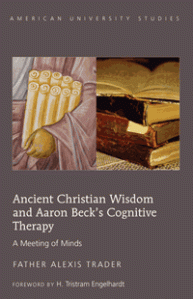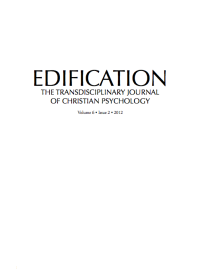And the Life of the Age to Come
 Elder Paisios once reminded his spiritual children: “The most important thing is for man to grasp this most profound meaning of life, which is the salvation of the soul. When man believes in God and in the future life, then he understands the vanity of this present life and prepares his passport for the other life. We forget that all of us will leave this life. None of us are going to put down roots here. This present life…is meant for us to be tested and to pass over into the future, eternal life. Our goal here must be to prepare ourselves so we can depart with our conscience at ease when God calls us close to Him” (Spiritual Awakening). The elder understood quite well what it means to expect the life of the age to come and to live according to that holy expectation.
Elder Paisios once reminded his spiritual children: “The most important thing is for man to grasp this most profound meaning of life, which is the salvation of the soul. When man believes in God and in the future life, then he understands the vanity of this present life and prepares his passport for the other life. We forget that all of us will leave this life. None of us are going to put down roots here. This present life…is meant for us to be tested and to pass over into the future, eternal life. Our goal here must be to prepare ourselves so we can depart with our conscience at ease when God calls us close to Him” (Spiritual Awakening). The elder understood quite well what it means to expect the life of the age to come and to live according to that holy expectation.
The Nicene Creed culminates in life, life that is eternal, everlasting, and endless with a timeless newness and an immeasurable abundance that break open our notions of time and space with the uncreated Light of the all-holy Trinity. This life of the age to come is far beyond our capacity to picture with earthly images or put into earthen words, but we do know that “this is life eternal, that they might know Thee the only true God, and Jesus Christ, whom Thou hast sent” (John 17:3). In other words, the life of the age to come is about intimacy with the Father, communion with the Son, and partaking of the grace of the Holy Spirit. In that life, “the righteous shall shine forth as the sun in the kingdom of their Father” (Matthew 13:43), for they shall be like Him; for they shall see Him as He is (1 John 3:2). The life of the age to come is about finding our rest in Christ and our peace in Him through having become Christlike in this life. He is the gentle harbor and the warm hearth at our journey’s end, which is in fact a new beginning like unto no other. In the vision of the beloved disciple, the life of the age to come is described as the “new Jerusalem, coming down from God out of heaven, prepared as a bride adorned for her husband…Behold, the tabernacle of God is with men, and he will dwell with them, and they shall be his people, and God himself shall be with them, and be their God. And God shall wipe away all tears from their eyes; and there shall be no more death, neither sorrow, nor crying, neither shall there be any more pain: for the former things are passed away… Behold, I make all things new.” (Revelations 21:2-5). And so the life of the age to come will involve our complete transformation and transfiguration into everything God desires us to be, His people without the fear of death, without the suffering of pain, and without the need for tears, but instead with the boldness of life, with the peace of God’s presence, and with the joy of intimate union with Him. Indeed, all things will be made new.
As in the previous article on the resurrection of the dead, so in this article on the life of the age to come, the verb that enlivens the statement, προσδοκῶ, refers to an expectation of the life of the age to come, a moving towards it and welcoming it with all our heart. Although this article is sometimes translated as “I look to the life of the world to come,” a translation of the word αἰών closer to its core meaning is a long span of time, so long that the adjectival form means eternity itself. The genitive phrase, μέλλοντος αἰώνος, meaning the future age or the eternity to come, is taken directly from Scripture (Hebrews 6:5) and is set in stark contrast with the present time. Saint Gregory the Theologian, and Saint Gregory of Nyssa for that matter, refer to the age to come as the eighth day, simultaneously outside of time as we know it and the very source from which time flows (Discourse on Pentecost, PG 36.432).
Saint John Chrysostom speaks of the age to come in terms of brightness and radiance (Exhortation to Theodore) as well as of it being the day in contrast to the present age, which is the night (Homily on Psalm 100, PG 55.636). In fact, the fathers view Saint Paul’s words in Romans as a beautiful expression of what it means to say “I look to the life of the age to come”: “The night is far spent, the day is at hand: let us therefore cast off the works of darkness, and let us put on the armor of light” (13:12). What do we expect in the age to come? Saint Athansios the Great answers, unequivocally with one word: Light! In that age, the faithful will put on this light as a garment, for they have already done so while struggling in the flesh by having put on the armor of light which are the holy virtues of the Gospel (Interpretations on the Gospel Parables, PG 29.731).
This expectation of the life of the age to come entails the expectation of intimacy with Christ, of radiance, of brightness, of virtue, and of light that comes through the foretaste of the heavenly blessings by dedication and devotion to Christ in this life. Each article of the Creed, each truth about God and His Church—which are meant to shapes our thoughts, our sentiments, and our actions—lead to this singular and blessed aim: Eternal Life and the Uncreated Light. The words of the Creed are so much more than intellectual assertions about the Lord Christ and His Church. They are “the words of eternal life” (John 6:68), the light in which we “shall see light” (Psalm 36:9). They are meant to be guides for life that illumine our darkness, shape our thoughts, and inspire our every act, our every intention, even the most subtle movement of our hearts. And they can be, if we only believe, if we only confess, and if we only expect all the luminous truths contained therein in the same way that we are to love God and neighbor “with all our heart and with all our soul and with all our mind and with all our strength” (Mark 12:30). “These words are faithful and true” (Revelations 21:5). May we make them our own. Amen.




Wow, great encouragement, written in touching words! In some modern churches, people are criticised for being “so heavenly minded they’re no earthly good”. While there may be some truth to that, in my experience, it is not so easy to be heavenly-minded. I daresay that those who are truly heavenly-minded (as St Paul was) will indeed be much earthly good, as they strive to point others to the way.
Thank you, Manie! And yes, being heavenly minded is the best way to do good on earth, for it brings a bit of heaven down to earth, raising up a bit of earth to heaven.